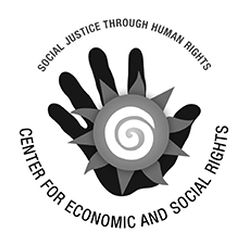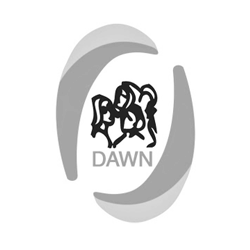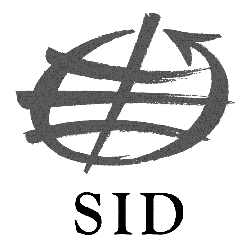By Aidan Eyakuze, Twaweza East Africa
A colleague, with a long career in Tanzania’s public education system as a teacher and school inspector under his belt, visited a school in a rural district to check on whether the teachers were present at school and teaching in the classroom. When he walked into a Standard Two class, he found about 50 eight-year olds sitting there, unsupervised and untaught. They did not know where their teacher was. He went to investigate and the head teacher could not explain the teacher’s absence either.
A few minutes later, my colleague returned to the class, to find the children in fits of laughter. Their teacher, sporting shoeless, muddy feet and looking rather sheepish, had returned and was standing at the front of the classroom. “You were not here a few moments ago. How did you get in?” my colleague asked. “I will be honest,” the teacher answered. “I was harvesting potatoes on my farm not far from here. When I was told that a 4WD vehicle had arrived, I thought it was some ministry officials. Fearing for my job, I ran back as fast as I could and climbed into the class through that window.”
Hilarious as it was, the early, largely negative lesson in citizenship that the class of eight-year old Tanzanians was receiving from their teacher was simply this: as a public servant, if you can avoid discovery and potential dismissal, it is fine to shirk your duty and to focus on your personal business. Would things be better if schools were run by the private sector?
The private provision of public education services, particularly those with no, or very low fees, tends to be viewed with deep suspicion by the global education rights movement. The Liberian government’s invitation in January 2016 to eight private actors to run 93 of their public primary schools, fee-free to the users, attracted sharp criticism, [fn]The Global Initiative for Economic, Social and Cultural Rights (2017). [/fn] faulting it in part for “spending twice as much in the pilot program schools per student as they do public schools”.
In November 2016, the High Court in Uganda ordered the closure of 63 low-cost Bridge International Academies for “having unsanitary teaching conditions and unqualified teachers”, to the dismay of the private schools’ pupils and parents. [fn]www.theguardian.com/global-development/2016/nov/04/judge-orders-closure-low-cost-bridge-internation… and Green (2016). [/fn] The firm’s 405 schools in Kenya risked the same fate soon thereafter. [fn]www.standardmedia.co.ke/article/2000226207/government-promises-crackdown-as-teachers-push-for-ban-o…. [/fn]
While the debate rages on the effectiveness of low-cost primary schools to deliver learning, it seems settled in favour of high-cost private schools. The question arises whether less well-off Africans ought to have the same choices for where to send their children to school as do their wealthier compatriots, or whether they are at a disproportionately higher risk of corporate capture of their right to education, and are therefore deserving of well-meaning protection from capitalist rapaciousness.
Some recent facts from Tanzania on the performance of the public education system are sobering. [fn]Uwezo (2017). [/fn] Take access. Only 19 percent of children attend private primacy school, and another 19 percent of Tanzania’s children are not enrolled in an educational institution of any kind. On the issue of quality, the learning outcomes for those who are enrolled are abysmal – in 2015, just two in five nine-to thirteen-year olds had basic reading (Kiswahili and English) and numeracy skills, a figure that has not budged in five years. Almost half of Tanzania’s 11-years olds are at least one academic year behind where they should be at their age, a sharp deterioration from 2011 when ‘just’ one in three were a year behind. Fee-free universal public primary schooling has brought with it such a plethora of quality-related challenges, that some parents near Dodoma, the country’s capital in central Tanzania, opted to take their children out of school altogether.
The jury is still out on whether the low-cost private provision of primary education is of higher pedagogical quality and achieves better outcomes. An evaluation commissioned by Bridge International Academies found that Bridge students in Kenya outperformed peers in neighbouring public schools in reading, listening comprehension, quantity discrimination and word problems. [fn]Kwauk/Robinson (2016). [/fn] An independent impact evaluation of Bridge schools in Kenya is ongoing with results due after 2018. [fn]www.povertyactionlab.org/evaluation/impact-evaluation-bridge-international-academies. [/fn]
We are left with a conundrum. The public provision of primary education results in large proportions of children failing to grasp basic literacy and numeracy skills. While it may be easy to champion it from a right-based perspective, its poor outcomes defy optimism.
However, low-cost private provision of primary education has yet to prove its ability to produce consistently and robustly superior learning outcomes. At the same time, advocates for higher-cost private provision must concede that the aspiration for an equitable society would evaporate as the intergenerational transmission of existing inequalities consolidates by replicating disparities in accessing quality education.
Advocating for overall system reform to address the conundrum is handicapped by the fact that we do not know how to change the system so that it produces better results for everyone. A large-scale research programme in several African and Asian countries is trying to answer this vital question: “How can education systems be reformed to deliver better learning for all?” [fn]www.riseprogramme.org/. [/fn] Comprehensive results are at least half a decade away.
Clearly, system reform is unlikely to happen soon or quickly. Yet our children cannot wait. Public and private provision of basic education must continue to co-exist. But how can the two sets of players work together to ensure that all children get a good quality education? How can they collaborate to nurture engaged and engaging citizens of the future? How can they revitalize the mission of pursuing a more equal society?
Perhaps the fundamental challenge is to vigorously assert that primary education is such an essential public good that it ought not to be privatized and commoditized. The argument is being made that as the increasing involvement of for-profit actors in education raises concerns about equity, the State has a role to play as “guarantor of last resort of education as a human right, i.e., non-discriminatory and equitable education be provided for free, at least at the primary level”. [fn]Daviet (2016). [/fn]
Ultimately, the bigger portion of the responsibility load must be borne by a State that represents the expression of citizens’ collective will. The public primary school is the first place that children encounter the organized State. The nature and quality of that encounter will leave a lasting impression on their young minds, and will inexorably shape their sense of citizenship.
A teacher who jumps into a classroom through a window with muddy feet may be momentarily hilarious. In the long run, it is not funny at all.
Aidan Eyakuze is Executive Director of Twaweza East Africa. Twaweza means “we can make it happen” in Swahili.
Daviet, Barbara (2016): Revisiting the Principle of Education as a Public Good. Education Research and Foresight Series, No. 17. Paris: UNESCO.
http://unesdoc.unesco.org/images/0024/002453/245306E.pdf
Green, Andrew (2016): What went wrong for Bridge Academies in Uganda?
www.devex.com/news/what-went-wrong-for-bridge-academies-in-uganda-89271
Kwauk, Christina/Robinson, Jenny P. (2016): Bridge International Academies. Delivering quality education at a low cost in Kenya, Nigeria, and Uganda. Washington D.C.: Brookings.
www.bridgeinternationalacademies.com/wp-content/uploads/2016/09/Brookings-Millions-Learning-case-study.pdf
The Global Initiative for Economic, Social and Cultural Rights (2017): Education Privatisation in Liberia.
http://globalinitiative-escr.org/advocacy/privatization-in-education-research-initiative/education-privatisation-in-liberia/
Uwezo (2017): Are Our Children Learning? Uwezo Tanzania Sixth Learning Assessment Report. Dar es Salaam: Twaweza East Africa.
www.twaweza.org/uploads/files/Tanzania%20Report%202017%20Web%20Version.pdf








